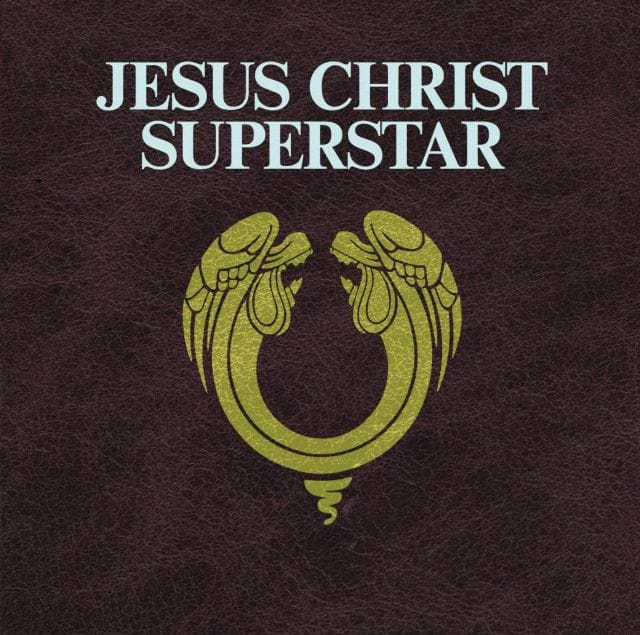Episodes: "Everything's Alright" from Jesus Christ Superstar

(I'm going to write about my favorite songs from musicals this week, because why not?)
When I was 12, there was nothing I loved more than the music of Andrew Lloyd Webber. I hadn't really had access to pop music as a kid, due to my religious upbringing, so listening to musical cast recordings was a kind of end-around those restrictions. Webber's stuff was by far the poppiest, which meant that I gravitated to it, but it also had the big, bombastic gravitas of musical theater, which I appreciated as an overdramatic kid. (To this day, I tend to like music with an epic sweep to it, and I suspect those Broadway days had a lot to do with this.)
Now, there's not a lot of Webber I can still stand. There are at least a couple of good songs in all of his shows, and I think Evita is a really interesting show that doesn't execute on everything it sets out to do (but gets the usual points for ambition I award to just about anything that tries something even slightly different). Sunset Blvd. is a pretty underrated show, and there's something so majestically goofy about the fact that Cats was a massive, massive hit.
But for Webber shows that I still love, front to back, there's pretty much just Jesus Christ Superstar, my favorite when I was 12 and my favorite now (and still one of my favorite musicals period). It, too, is a messy show that bites off more than it can chew, but in the process of doing so, it asks questions about faith and belief that I've spent my whole life wrestling with, and it does some really interesting things with perspective.
The best song in the show is "Everything's Alright," which comes relatively early in the first act and documents the story of Mary Magdalene washing Jesus's feet. (The woman is unnamed in the Luke account Webber and lyricist Tim Rice adapted, but she's often depicted as Mary Magdalene. In John, she's Mary, sister of Martha. Junior Bible Trivia comes through again!) I'm drawing mainly from the version with which I'm most familiar, sung by Claire Moore for the 20th anniversary concert recording. It's a little less '70s drowsy than the one you might be familiar with, a little more Broadway rigid.
The first thing you might notice when listening to this is how subtly it conveys to you that things are falling apart. This is not a song that feels stable. It feels like a wagon going too quickly down a hillside, rolling faster and faster. The reason for this is the song's 5/4 time signature, which adds exactly one more beat to the much more stable 4/4, thus discombobulating your brain ever so slightly. (Another song to use the 5/4 to this effect is Dave Brubeck's "Take Five," which I also love. I guess I have a type.) As Jesus Christ Superstar opens, Judas Iscariot has become convinced that Jesus's whole movement is horribly, impossibly flawed, that it's running out of control, and there's nothing that can be done to stop it. And since "Everything's Alright" is seen through Judas's point of view, it subtly reflects his growing concern through the number of counts per measure.
But what's also brilliant about this song is the way that it flips the story from the Bible around almost entirely by shifting perspective. In the Bible, where Jesus is more or less the pov character, Judas's interrogation of his waste of ointment comes across as snotty at best, openly challenging at worst. In this musical, when Judas challenges Jesus, he makes a lot of sense. (Why wasn't that sold to give money to the poor, given Jesus's historical desire to help them?) And, what's more, when Jesus retorts to Judas that he'll only be around so long, there's no tragic weight to it. Jesus just sounds like kind of a dick.
To religiously closed off, 12-year-old me, all of this hit like an atomic bomb. Jesus Christ Superstar has always had a checkered relationship with religious people, who have alternately condemned it and celebrated it for at least being a musical about Jesus where he's not played by a clown. (I still love you, Godspell.) I suspect a lot of this has to do, however, with how skillfully Webber and Rice situate the story from Judas's point-of-view. The qualms Christians have raised about the show (chiefly with how it doubts Christ's divinity) sort of get washed away when you consider that Judas is the one telling this story, and I suspect that's why it's become more accepted by various churches over the years. And for me, it was a powerful lesson in how shifting the perspective of a story could dramatically effect how it was told. (Sadly, only "Everything's Alright" really pushes this idea to its limits, because Jesus and Judas share so little "screentime.")
I've always thought perhaps the show's fatal flaw is that it continues on past Judas's suicide. Yes, that gives us the song that gives the show its title (and my other favorite song from the show), and when staged well, the final number is mournful and beautiful. But I love the idea of the story ending with this man reaching the end of his rope and killing himself, while we in the audience know that all of the concerns he had were washed away by history. It's sort of the All the President's Men ending -- the characters think one thing, but the audience knows something else entirely is about to happen.
But maybe that would rob the show of some of its power, too. After all, the central questions are there in "Superstar." The old Christian canard is that it would be easy to have faith if you had actually met Jesus, but what Jesus Christ Superstar supposes is that faith and belief are difficult, even if you have ready access to miracles. To actually have known Jesus wouldn't be to have all of your questions about the eternal easily solved, or Christianity would have started out of the gate much more quickly than it did. No, to actually know Jesus was to either decide to believe in him or to always nurse doubts, which is where we find Judas as the musical begins and even as it ends.
All of our stories are eventually going to be determined by other people. When we die, our narratives are taken away from us and placed in the hands of others, be they our descendants or someone else. In the eyes of Jesus Christ Superstar, both Jesus and Judas had whatever "real" lives they had robbed from them by history. This is, it says, what will happen to us all.
--
Episodes is published daily, Monday through Friday, unless I don't feel like it. It is mostly about television, except when it's not. Suggest topics for future installments via email or on Twitter. Read more of my work at Vox Dot Com.




